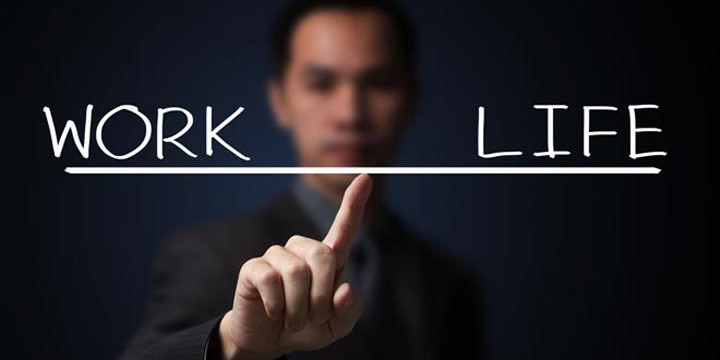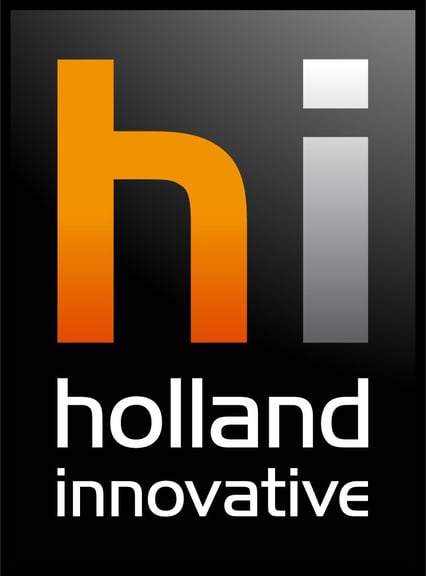by Hans Meeske
We have never quite understood why private and business should always be so strictly separated. People spend most of their time in the office. So why shouldn't there be the same friendly and familiar atmosphere as at home?
In any case, that is what we strive for with our company Holland Innovative (HI). We like to call our employees 'the HI family'. To an outsider that may sound tacky or exaggerated, but we take it very seriously. And if you ask our employees, most will recognize themselves in that term.
In this article I outline our vision on what we understand by the HI family and how this model ensures a better working atmosphere, super satisfied employees and a lot less dropout and turnover. To illustrate our vision, we asked three of my employees to tell something about what they experience as the HI family from their own experience. Those stories are below this piece.
Sincere care
In our view, the HI family consists of three elements. The first element is genuine concern for the employee and his or her family. From our team we put the health of the employees first. We also involve their families in this, because if things are not going well at home, an employee is not feeling well and that is at the expense of overall job satisfaction. That is why we give space to employees who have to care for a sick child or a sick parent. One of our employees suddenly had a sick son and had to take care of him two to three days a week. We have given them unpaid leave for this.
Talent development company
The second element is the personal development of the employees. Officially HI is a knowledge center in product and process development, including project management of the projects, but we always refer to HI as a talent development company. You don't just come to us to write hard hours, but above all to develop yourself and make your professional dreams come true. We believe in the 4+1 model, where you work at the customer for four days and spend one day on your own development, a start-up or other challenging projects.
For example, one of our employees was starting his own company around virtual manufacturing. To make that happen, she wanted to work half a day less a week. We gave her an extra half day, during which we asked her to share the learnings of this project with colleagues. She then gave a presentation on this subject at our workplace.
Personal why
At HI we help every employee to discover his or her personal why. We look at where he or she wants to go and how we can achieve that together. We investigate which projects are suitable, whereby we are prepared to make a choice for a less commercial project or a break after a completed project. One of our employees really wanted to make a shift to another field. We gave him space for that. Because he really wants to take that step, we very consciously say no to commercial projects that do not fit into that picture.
Are you still okay?
The third element of the HI family is the intrinsic motivation to ensure that your colleagues are doing really well. We consciously encourage employees to question each other about this. Don't remain silent if someone is under a lot of stress or is not feeling well, but simply and sincerely ask the question: are you still doing well? Can we do something for you? Then it's also very nice to notice that you get that question back yourself. This is how we create an atmosphere of authentic involvement, in which everyone feels seen and valued.
Intrinsic motivation
The advantages of the HI family model are many. For example, we notice that there is much less turnover than at other companies. They are often around 30 percent turnover, while we only have 5 percent. The second advantage is that if people drop out due to illness, they generally return much faster. We continue to look after them and involve them in the day-to-day business, even if they are sick at home. We do not believe that reporting sick is a solution, as is often propagated by the regulations. But we believe in attention and sincere involvement. By being there for people, guiding them and keeping them afloat during an illness or possible burnout, you give them hope, confidence and the energy and drive to keep going. Our experience is that this speeds up recovery tremendously.
The passion for our HI family makes us organize our company in this way. The nice thing is that this also has various advantages from a business point of view. That is certainly not our primary motivation, but it is of course convenient. In the technology and knowledge industry it is extremely difficult to find good personnel. All the more important that you keep the people you have. We know from experience that recognition and involvement in the workplace is valued much higher than a high salary. We pay well, but again not the best in the market, but people often choose us because of our family model, emphasis on personal development and the opportunity to accelerate through the learning curve for an expert position.
Incur costs
On the other hand, this model also certainly entails costs. Yes, if three people are suddenly sick at home, you might be out of luck if you extend their contract and continue to pay. But in the long term it will pay for itself twice over, we are firmly convinced of that. We think the HI family idea can really be at the expense of the operating result. Of course we have to write black numbers, but we are not afraid to incur costs or take losses to take care of our employees. And if you keep putting that employee first, our personal experience is that you always keep writing black numbers.
Enough about our vision, read the experiences of our employees themselves below.
Employee Martin is terminally ill. His story:
I started at HI about four years ago. Just before my annual contract ended, HI said she wanted to give me a permanent contract. Less than a month later I go to the doctor for a minor complaint and was told that I have an incurable form of prostate cancer and that I only have a few years to live. With that story I went back to HI. The first thing they said was that my contract extension to unpaid time will continue. That was heartwarming to hear. I have since been rejected and the chance that I will ever be able to do something for them again is small, but the fact that they put people first is very special.
It's been almost three years now since the diagnosis and I've had a contract with HI ever since. The chemotherapy and pain medication make it very difficult to work. But the opportunity to drop by at drinks, meetings or other social events is still offered to me. I experienced that as very warm, also because I know that I am gradually saying goodbye to a lot of things. The fact that my work is still there when I would like to embrace it gives me a very good feeling. There are plenty of companies that say, we can't use you anymore and it's the end of the exercise, but HI is certainly not that. That surprised and amazed me on the one hand, but also gave me a very good feeling.
For me, the HI family means pursuing a common goal with a large group. Of course you do that in every company, but it's about the way you do it. At HI this is expressed in paying attention to each other and not losing sight of each other. That if someone has too much work, someone else says: are you taking care of yourself? Shouldn't you take a step back or can I help you with something? It is much more than purely busines
Employee Jan* suffered a burnout. His story:
I was out for a year and a half because of a burnout due to something that played in the private sphere. Now I am reintegrating. I am very grateful about the way HI handled that and they treated me. My boss Hans is a very busy man, but he took me for a walk every month for sixteen months. He takes two to three hours to do that. Those walks weren't about work at all, it was just nice chatting.
At Christmas, Hans personally brought me the Christmas present at home. I had visitors and introduced Hans as my boss. Immediately and without hesitation Hans then said, 'no, colleague, not boss'. Of course Hans remains my boss, but such an incredibly human boss. Of course you have to perform, but if things get tough, you won't be put to the test, but we will look at what you need to come out better.
Personally, I really got something for my choosing. If I also had to worry about whether I would still be able to keep my job, it would be very difficult. I had a lot of peace in that. And indeed it is much easier to come back than if you have not had any contact for a year and a half.
I now work forty hours a week again, but we are still a bit careful not to take on very heavy projects. They think along very well and monitor me so that I don't take too much hay on my fork. I notice that Hans really wants to do it that way intrinsically. It is very deep in his norms and values to help you. That sounds very authentic.
What I have seen a lot at other companies is elbow work. That is absolutely not the case with HI. Colleagues are always helpful. There is a very family atmosphere. And there's not a hair on my head thinking about leaving HI. I am really grateful to them.
*The first name has been changed for privacy reasons
Employee Bart has been working at HI for fifteen years. His story:
When I had been with HI for 12.5 years, I was working for a customer and Hans suddenly showed up with a large cake. When it's my birthday I always get a card. It's often in the small things, but it's much more personal than just being an employee.
Hans really hammers on the balance between work and private life. Some of the projects I've done were quite tough and I took them home as well. Hans then really watched and gave me the opportunity to do something with it in the form of a core management course. That really helped me put the work into perspective.
You always have the space to develop yourself on a personal or technical level. Many courses are given within HI. Hans always indicates if there is an interesting course and also gives us the opportunity to follow courses that are not directly related to your field, but which broaden your knowledge.
In particular, I have not experienced the personal approach and cordiality to such an extent at other companies. Of course it's business and you just have to do your projects, but I find that the personal really makes a big difference. It's not for nothing that I've been there for fifteen years. I don't think I would have worked so long at any other company.




.jpg?width=200&name=Holland%20Innovative%20summer%20academy%20-%20Project%20Management%20Masterclass%202%20(2).jpg)